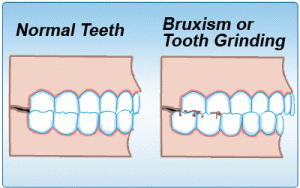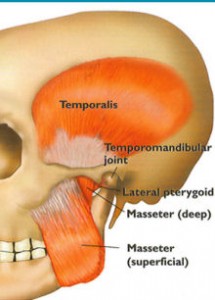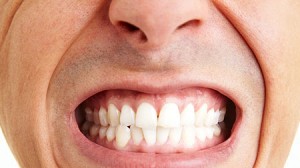Being that students are in final exams period, the work force is proximate to closing for vacations, and people in general have more expenses during the last month of the year, this time is known for stress levels in people to rise, even to the point where it can affect their oral health.
 Stress can cause the body´s defenses to drop, which can lead to being more susceptible to have diseases such as gingivitis, periodontitis, which could potentially contribute to tooth loss.
Stress can cause the body´s defenses to drop, which can lead to being more susceptible to have diseases such as gingivitis, periodontitis, which could potentially contribute to tooth loss.
¨Bruxism starts when stress generates oral habits to release tension, such as teeth grinding, which causes fatigue on the muscles in charge on chewing, thus producing pain in the mandibular joints¨, explains Dr. Telma Rubinstein from Prisma Dental.
It can also present wearing out, fractures or cracks on teeth that can cause a poor occlusion, which can generate sensitivity or discomfort en the different areas in the face, ears, head, and even on the back.
Even though bruxism is often caused by physical defects that can cause poor bite occlusion, the eruption of wisdom molars, or a deficient orthodontics appliance, in most cases it is caused by emotional tension, repressed anger, resentment, anxiety, pain, or frustration.
¨There are two types of bruxism, centric which is grinding of the teeth, and eccentric, which refers to rubbing of teeth, and both can occur either on daytime or nighttime. At some point during the day, whether it is due to work or other cause, many people have picked up the habit of grinding teeth, and this is a practice that needs to be corrected¨, says Dr. Rubinstein.
Rubinstein.
Usually, nighttime bruxism patients are not aware of the problem, but become aware by someone that sleeps close to them, due to the noise produced by the teeth. Dentists are able to identify the problem by observing the destruction of the enamel and dentine of the teeth, which can lead to teeth looking smaller, wider, and more yellow.
Another ailment produced by bruxism is lack of oxygen which causes damage to oral tissue cells, and when they die they cannot be replaced by new cells they and deteriorate the tissues that support teeth.
Treatment for bruxism seeks stopping or preventing permanent damages as well as reducing pain, however, the recovery depends on the origin of the issue, the patient´s age, how advanced the disease is, and tolerance to medication that helps with alleviating the problem.
¨In the cases in which the bruxism is so severe that it causes damage to the teeth, the patient can be helped with a custom made mouth guard that can prevent that the upper and lower teeth get in contact with each other during the periods of nighttime teeth grinding¨, added Dr. Rubinstein.
When the problem is causes by a physical defect in the mouth, the bite can be corrected by adjusting it or balancing it, with orthodontic techniques, placing of crowns, and full mouth restoration.
¨In cases of stress, anguish, or bad tempers, patients can turn to emotion controlling resource, such as relaxation. With children, parents can offer emotional support so that they are able to express their feelings and fears by providing a calm environment that will help them relax, even with a warm bath before bed¨, expressed Dr. Telma Rubinstein.
With adults, they can recur to medication and therapy, which in several cases can be complemented with physical therapy.
Signs that can help detect teeth and mouth damaging stress:
Bruxism symptoms can vary depending on the patient, and even if the diagnosis is reserved for a specialist, the following descriptions can help in its uncovering.
- Fall of small fragments on teeth
- Teeth can turn very sensitive and weak
- There is wearing of in the enamel of the tooth which gives a flat surface appearance and it exposes the internal part of the tooth, called dentine
- Patient has discomfort when closing the mouth
- Tension of the face and mandible muscles, accompanied by pain
- Headaches and ear pain
- Tongue shows teeth marks and damage in the inside parts of the cheeks
- There can be mandibular dislocation, crunching or clicking of the mandibular articulations
- Presence of cavities or decay
- Bad breath as a consequence of periodontal disease caused by lowering of defenses
- Poor digestion due to inefficient chewing
In the face of these bruxism symptoms, the best recommendation is to visit the dentist periodically and take all necessary measures at the very least sign of this problem
By Prisma Dental
For more information contact Prisma Dental at their website. Prisma Dental Website

